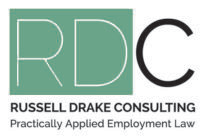We are currently living and working in unprecedented times with this having the potential to impact on the way many businesses will operate in the coming weeks and months. Like no time previously, businesses now have to consider the real prospect that many workers may not be able to remain at work and that different forms of work practices may need to be adopted on a temporary basis.
Working from Home Guidelines
Where an employee is required to remain at home for a period, either due to the need to self-isolate or the effects of economic conditions of the business, the employer may wish the employee to continue to undertake some work. In such case, an agreement for the employee to work from home can be obtained through consultation with the employee, with the following guidelines being implemented:
- Any change to an employee’s usual work conditions must still be implemented only after consultation with the employee. (i.e. the employer cannot just make an arbitrary decision to send the employee home and expect them to continue working).
- Agreement will need to be obtained as to the expectations for the employee to remain available to undertake work, including being available to receive work related phone calls.
- The employer should either provide the necessary resources to enable the employee to undertake the required work or reach an agreement with the employee regarding the use of the employee’s own resources (i.e. will you allow dial in access off an employee’s own PC).
- The employer should ensure that suitable tools are in place to enable the employee to maintain contact with others within the workplace (i.e. skype or zoom calls to bring people in work related meetings).
- Agreement will need to be reached regarding any reduction in the employee’s income while required to remain at home, and still be available to undertake work duties or responsibilities – this would be best achieved through a temporary variation to the employee’s terms and conditions of employment.
- Agreement should be reached regarding how any hardcopy materials (if required for the work completion) are removed by the employee from the workplace and vice versa to avoid any unnecessary personal contact if a risk of viral disease transmission is present.
- As the obligations of the Health and Safety at Work Act 2015 remain in place for people who are regularly working from home, the employer does retain obligations to ensure that the employee is safe (within practical terms) while working from their own home.
- The employer should maintain regular (daily) contact with the employee to monitor the situation and to ensure that the employee feels that they are still part of the team.
- Remember that the employee remains a valuable member of the team even when physically absent so attempt to link them into all relevant communications so that they retain a sense of inclusion.
Though some employees may relish the thought of an extended break, for many work is such an integral part of their being that if they are required to remain away from the work environment for an extended period, they may experience feelings of frustration and demotivation. Therefore, adopting the following guidelines will assist greatly in maintaining the employee’s morale and prepare them better for a return to the work environment.
Self-Isolation Guidelines
Where an employee has recently returned from overseas travel, and is affected by the Governments minimum 14-day self-isolation requirements, the employer should advise them of the followings:
- As much as is practical, limited face to face contact with other people, particularly the very young and elderly people.
- Avoid situations where they are in contact with others by using a 2 meter rule and limit any required contact to less than 15 minutes.
- Minimise the time needed in shared spaces (i.e. bathrooms, kitchens).
- Avoid having visitors at the house.
- Have any required supplies dropped off to the house where practical.
- Do not share dishes, drinking glasses, cups, eating utensils, towels, pillow or other items commonly used by others in the house.
- After using kitchen items, wash them thoroughly using a separate tea towel.
- Wash clothes separate from others not self-isolating.
- Do not share food or prepare food for others.
- Do not share items such as toothpaste and clean the toilet after each time it is used (have cleaner immediately available).
- Wash hands regularly – using soap or hand sanitiser.
- Avoid touching eyes, nose and mouth with unwashed hands.
- Cover mouth and nose with elbow if coughing or sneezing.
- Get outside and have regular exercise (alone).
- Aim to stay in well ventilated areas.
- If needing to go out, do not use public transport.
- Keep in contact with others through phone, email and text so that others are aware of the person’s status.
- If any symptoms of illness emerge immediately seek medical assistance – initially by telephone (Healthline 0800 358 5453).
- The symptoms of COVID-19 are cough, fever and shortness of breath.
If the self-isolating person follows these guidelines for the immediate 14-day period after returning from travel, the Ministry of Health advise that the chances of any non-isolating people contracting any virus are minimal.
If you need any further advice regarding working with your employees during this pandemic, or any other concerns please feel free to contact us directly.

